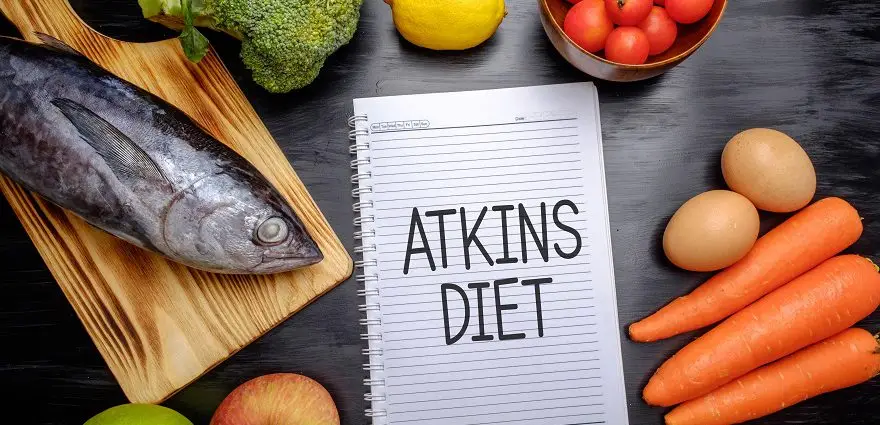We’re letting you know that this post contains sponsored links which Your Savvy Purse receives compensation for, which may impact their order of appearance.
Over the years, fad diets have come and gone, capturing the attention of millions of people hoping to lose weight quickly. From extreme food restrictions to quirky meal plans, these diets promise dramatic results but often lack long-term sustainability. While some may have offered short-term success, many have proven to be unhealthy or unscientific. Below, we’ll explore 10 of the most famous fad diets that have made waves over the years.
1. The Atkins Diet
The Atkins Diet, introduced by Dr. Robert Atkins in the 1970s, focuses on drastically reducing carbohydrate intake while emphasizing protein and fats. The diet is divided into four phases, beginning with an extremely low-carb phase and gradually reintroducing certain carbs as weight loss progresses. While many people have found success with Atkins in the short term, critics argue that such a high-fat, low-carb diet could raise cholesterol levels and increase the risk of heart disease.
2. The South Beach Diet
Created by cardiologist Dr. Arthur Agatston in the early 2000s, the South Beach Diet is a low-carb, high-protein diet that focuses on healthy fats. The diet encourages the consumption of whole grains, lean proteins, and healthy fats, but it initially restricts carbohydrates like bread and pasta. Although it gained popularity for its structured phases, some experts point out that its strict rules might not be suitable for everyone, especially in terms of long-term adherence.
3. The Paleo Diet
Often referred to as the “caveman diet,” the Paleo Diet encourages eating like our prehistoric ancestors. The diet focuses on whole foods such as lean meats, fish, fruits, vegetables, nuts, and seeds, while excluding processed foods, dairy, grains, and legumes. The diet has gained a following for its emphasis on natural, unprocessed foods. However, many critics argue that it’s difficult to maintain long-term and that excluding entire food groups could lead to nutrient deficiencies.
4. The Juice Cleanse
Juice cleanses, or detox diets, involve consuming only fruit and vegetable juices for a set period, typically ranging from three to seven days. These cleanses claim to detoxify the body, promote weight loss, and boost energy. While juice cleanses can lead to short-term weight loss due to their low-calorie nature, they lack essential nutrients like protein and healthy fats. Moreover, many nutritionists argue that the body doesn’t require detoxification since the liver and kidneys naturally filter out toxins.
5. The Cabbage Soup Diet
The Cabbage Soup Diet is a short-term, low-calorie, and highly restrictive diet that involves eating large amounts of cabbage soup every day, along with a few other low-calorie foods. While some people see rapid weight loss, the diet is nutritionally imbalanced and can leave dieters feeling weak or fatigued. This extreme caloric restriction is not sustainable in the long term, and it doesn’t promote healthy eating habits.
6. The Master Cleanse
The Master Cleanse, also known as the Lemon Detox Diet, is another extreme cleanse that involves consuming only a mixture of lemon juice, maple syrup, cayenne pepper, and water for a period of 10 to 14 days. This diet claims to detoxify the body, promote weight loss, and improve digestion. While proponents argue that the cleanse helps flush toxins, nutritionists warn that it’s nutritionally inadequate and can lead to dehydration, electrolyte imbalances, and muscle loss.
7. The Zone Diet
Developed by Dr. Barry Sears in the 1990s, the Zone Diet focuses on balancing the intake of macronutrients in a 40:30:30 ratio (40% carbs, 30% protein, and 30% fat). The diet encourages eating smaller, more frequent meals throughout the day to maintain stable blood sugar levels and reduce inflammation. While the Zone Diet has gained popularity among fitness enthusiasts, some argue that it can be difficult to follow and may not offer substantial long-term weight loss benefits.
8. The Grapefruit Diet
The Grapefruit Diet is a highly restrictive, low-calorie diet that promotes the consumption of grapefruit with every meal. The idea behind the diet is that the enzyme in grapefruit helps burn fat. However, there is little scientific evidence to back up the claims that grapefruit aids in fat burning. The diet is also low in essential nutrients and is not recommended for long-term use due to its extreme caloric restriction.
9. The Dukan Diet
The Dukan Diet is a high-protein, low-carb diet that gained fame in France and has since become popular worldwide. Developed by Dr. Pierre Dukan, the diet is divided into four phases: Attack, Cruise, Consolidation, and Stabilization. The first two phases involve strict protein intake, while later phases gradually reintroduce carbs and fats. While many people report rapid weight loss on the Dukan Diet, it can be difficult to maintain, and the high-protein nature of the diet may cause kidney strain over time.
10. The Ketogenic Diet (Keto)
The Keto Diet focuses on drastically reducing carbohydrate intake and replacing it with fat, forcing the body into a state of ketosis, where it burns fat for fuel instead of carbs. While the Keto Diet has been shown to be effective for short-term weight loss, it can be difficult to maintain and may cause nutrient deficiencies. Furthermore, the long-term health effects of a high-fat, low-carb diet are still not fully understood. Despite this, it has become incredibly popular due to its quick results.
In Conclusion:
While many of these fad diets promise quick weight loss, they are often unsustainable and can lead to nutrient deficiencies or other health issues when followed long term. For sustainable weight loss, experts generally recommend focusing on a balanced, nutritious diet, regular physical activity, and healthy lifestyle choices. Remember, before starting any diet, it’s essential to consult with a healthcare professional or registered dietitian to ensure it aligns with your individual health needs.
Ultimately, the best approach to weight management is one that you can maintain, feels good for your body, and supports overall health—not just a quick fix.



